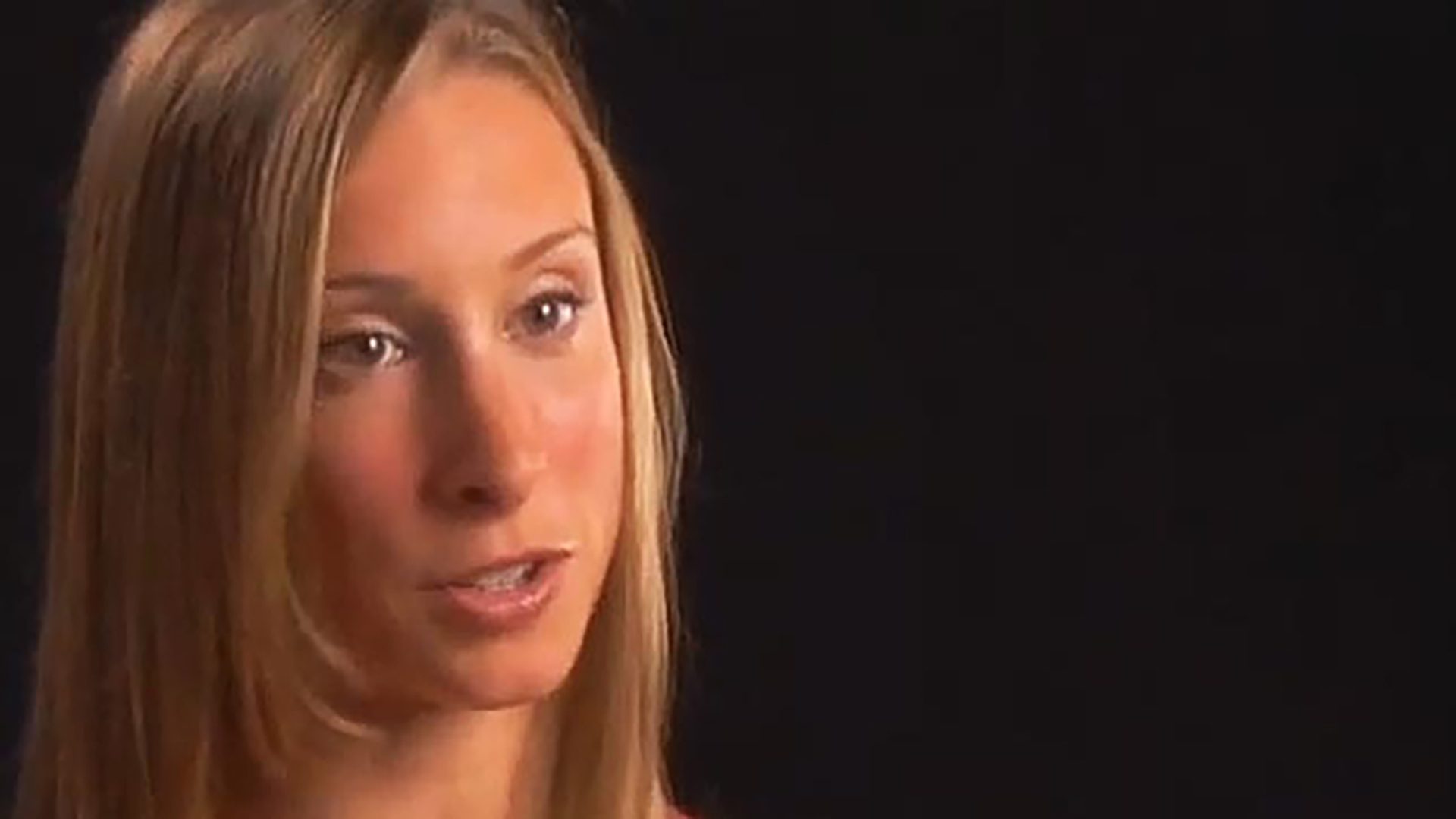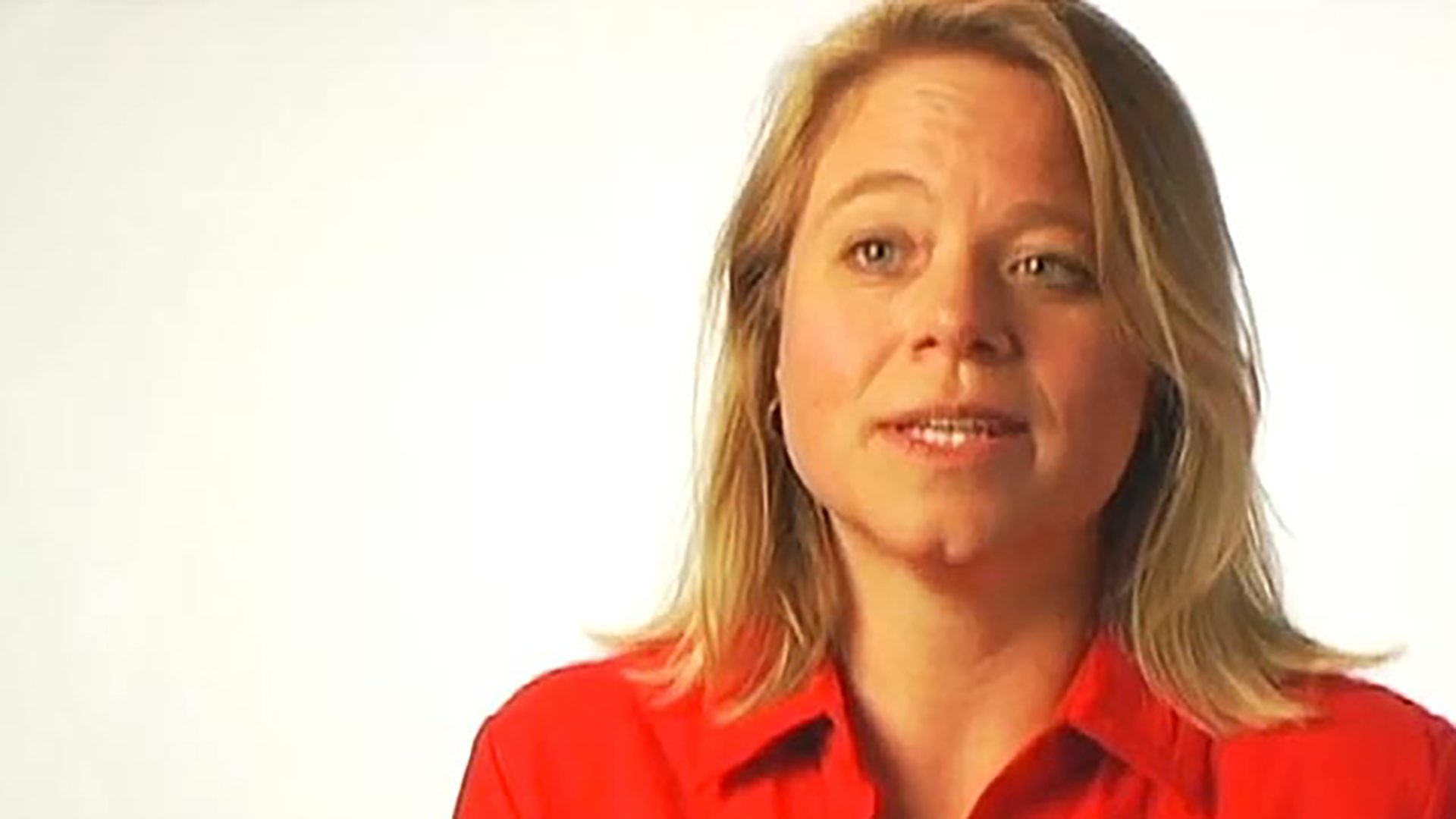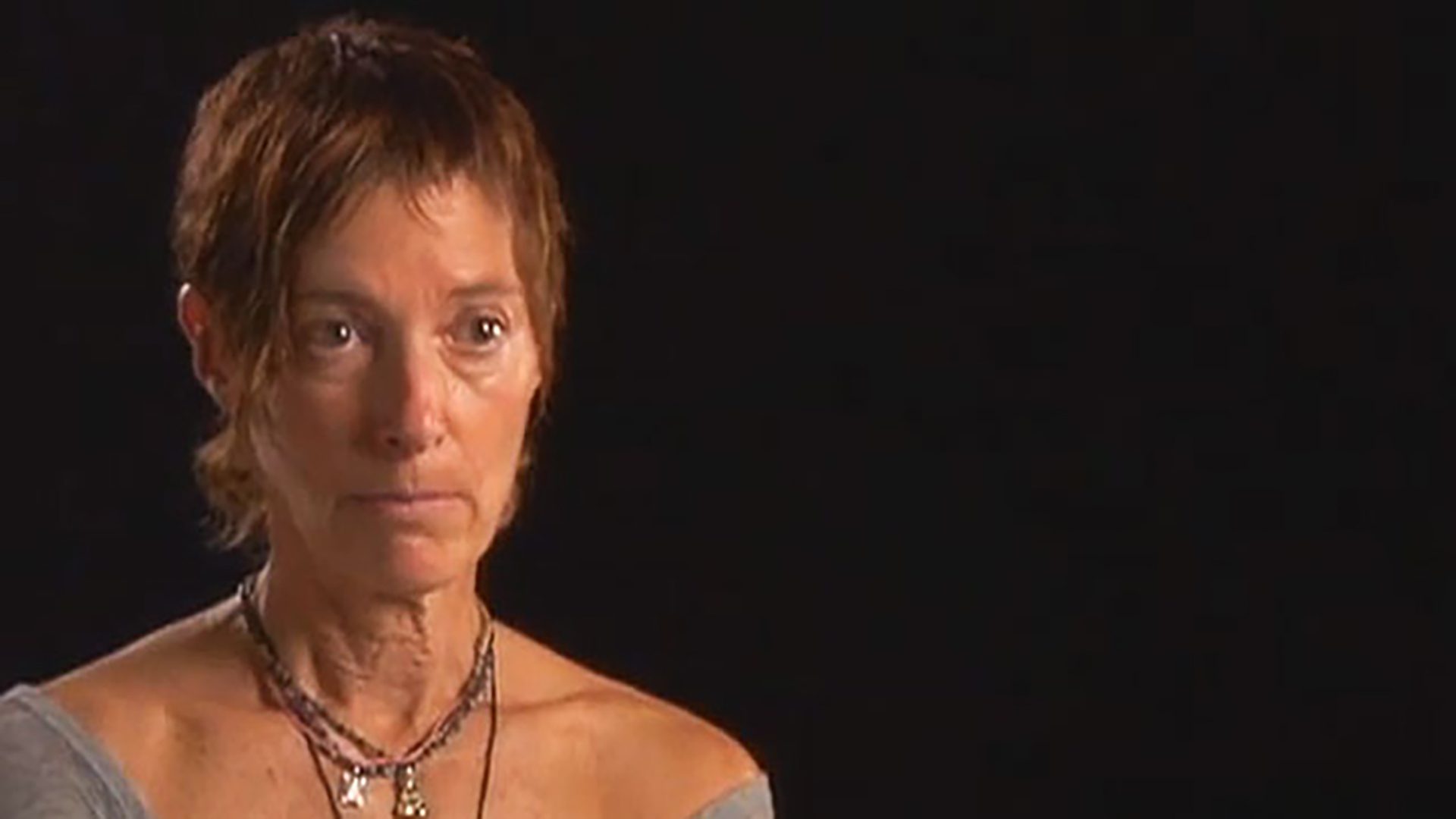Survivor Interview – Cindy C.
Cindy is a kidney cancer survivor. She discusses managing aftereffects of cancer treatment, relationships, and applying for Social Security Disability Insurance.

I was diagnosed in August of 2004, after having a surgery to remove a cyst from my kidney.
They thought it was a complicated cyst, but they didn’t believe that the little shadow that they saw was actually a tumor. While I was in the OR, the pathology came back as inconclusive. The decision was made to leave my kidney in at that point and wait for the pathology to come back. Two weeks later, I went back to the surgeon and expected to hear that everything was fine. My chances were so low in having kidney cancer. Then he told me that it was, indeed, cancer. They hadn’t clearly identified what type yet, but I would need to have surgery to have my kidney removed four weeks later. On August 31, I had a nephrectomy.
The kidney is responsible for filtering some of the toxins out of the body. I do have to make sure that I’m well-hydrated, as most people do. If you don’t, then your urine can become too concentrated. I also notice that sometimes in the morning, I’m retaining a little bit more water, and the puffiness under my eyes may be from that one kidney not catching up as much as it should. I certainly refrain from drinking alcohol and so forth, to make sure that I don’t cause any problems in that way.
Every three months, I have a CT scan or an MRI and the blood tests. Certainly, that anxiety builds up every time it gets closer. I am good for about two months, and then two to three weeks before I have to have the next round of exams, I start to get a little bit nervous. But overall, it really hasn’t affected my life in a negative way, and that’s why I feel so lucky. I think about people who are receiving chemotherapy every day and think about how lucky I am.
Fortunately, even with the cancer, I always stayed in very good shape and always pushed myself athletically. I really don’t notice much of a difference. I certainly make sure that I stay well-hydrated. But I don’t worry about it too much. I feel tremendously better.
I actually ran my first running race, the Healthy Kidney 10K, here in Manhattan just a couple of weeks ago. Previous to that, because I had such a large cyst on my kidney, I wasn’t able to, and I had the high blood pressure. So I really feel so much better now than I did a year ago. I am pushing myself more physically now than I had in the past. I like to live every day very, very fully. So now when it’s a beautiful day outside, it’s hard for me to just sit still, and not go outside and go for a bike ride or a run, and call up my friends and go out.
I think being the daughter of a survivor and then being a survivor myself was certainly an interesting experience. I am in a service industry where I’m talking about being healthy, and that was very difficult. I really thought of myself as living that life. The day of the diagnosis, I really didn’t expect to hear that it was cancer. Here I am, a personal trainer, trying to live a balanced life. I’ve always been very active. I’ve always eaten well. And I just felt like it all fell apart in that instant. I just felt embarrassed. How am I going to go back to work and tell my clients that I have cancer, when I’ve been telling them, “If you exercise and you eat well…” But then, it turned out that I had cancer regardless of how I treated myself in the past. So there was just a big level of embarrassment there. It’s not that I felt it was my fault, it was just, “How am I going to express this to other people? How am I going to tell them that I have cancer?”
I was with a boyfriend for six years, and the relationship was on its way out. Then after the first surgery, it came very quickly to an end, and that was even before the actual diagnosis came about. So that’s been difficult, too. That was a long-term relationship and just when I needed that person the most, he just wasn’t able to be there for me. I had really supported him a tremendous amount through some difficult times, and I think when the tables turned, that was very difficult for him. Certainly, I was very emotional. He was very busy at work, and it was just too much for him to deal with. I think he wasn’t sure if I was the one for him, and with those questions in his mind, and then me becoming sick and then not supporting him in the way that he needed, it just was a reasonable conclusion. Fortunately, I have a wonderful family and became closer to some of my friends. I learned a lot from that, to have so many people come around me and really give me the support that I needed.
I haven’t started to date a whole lot yet. I’ve been very busy. Someone brought it up to me recently that it must be difficult dating and having to tell someone you’re a kidney cancer survivor. I haven’t thought about it too much. I just believe that once I do find the right person, or that person finds me, that it really won’t be too much of an issue. I get a little bit down about the thought that I’m 33, and I would like to get married and have children, but I haven’t found the right one. But I’m very hopeful that that will come around.
It was difficult taking the time off from work. I went on to disability. I get paid only when I’m actually training clients. So to step away and have such a small amount of money coming in was very difficult. I do live in a very expensive part of the country, so that was very worrisome for me. I did have to start to rely on other people.
The paperwork for short-term disability can be very intimidating. It’s not easy to go to your employer and say, “By the way, I need to have surgery. They’re not sure how it’s going to turn up.” They come right back with, “Here’s the paperwork. You have to fill this out. Your doctors have to complete this. You have to complete it within a certain period of time.” It’s very difficult to be sick and recovering from surgery and to have to continually get back to them and turn in the paperwork when you do not want to be concerned about that. I felt like that was a thorn in my side and would have hoped that my employer would take better care of me in that way. But I realize that’s not something that you should expect from any employer.
So it’s good to have someone to help you with that sort of thing. That’s where I actually referred to the Lance Armstrong Foundation. I started to take notes and use the diary that they had provided, and make sure that I had everything together, and kept my folders together. That was very important. I think it’s important for anyone to make sure that they have the paperwork straight.
You need to stay on top of health insurance as well. You need to make sure that when the bills come in from the hospital that you’re not double paying because they send bills very quickly. You should take notes on your conversations that you have with any billing departments. If you’re getting reimbursement for any of your payments, stay on top of the health insurance for that. It’s a strain when you’re ill. So if you can have someone help you out with that, it certainly is a good thing to do.
My hope is really to be a survivor. You have to stay strong in your life and live every day with a tremendous amount of hope and perseverance, and get through all that you need to really get through. I referred to some of the tools on the Livestrong website and saw that there was a lot of information there. I was very happy to see that.
Livestrong means living every day to the absolute fullest. Eating well and exercising almost every day. There isn’t a day where I don’t go for a long walk, or I’m out running or biking. Helping others always helps me to feel better…giving some sort of support. Hopefully, being a model of a balanced life.
My name is Cindy Calabrese, and I am a one-year kidney cancer survivor.

